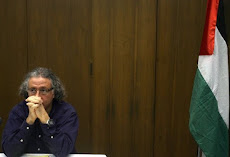"The answer lies in a cultural-political mindset that has been cultivated over several decades. When a section of policy makers began to develop a vocabulary around Arab and Muslim terrorism in the 1970s, Hollywood stepped in to visualize this new enemy. Dozens of films about brown terrorists bent on attacking the U.S. and Americans, like "Black Sunday" (1977) and "True Lies" (1994), shaped our collective imaginations so effectively that when the Oklahoma bombing occurred in 1995, it was automatically assumed that Arabs were responsible.
The real trauma of 9/11 elevated this mindset, creating fear and paranoia that terrorists are everywhere. Though we are twice as likely to die from a lightening strike than a terror plot, government campaigns such as “See Something, Say Something,” and popular television shows like “24” and “Homeland,” have inculcated a pervasive threat consciousness.
This ritualistic and repetitive depiction of a vulnerable homeland is what has allowed for the emergence of a surveillance state that now sees fit to monitor all its citizens. Few politicians have challenged such invasive surveillance for fear of being cast as “soft on terrorism.”
Thus, a “terrorism mindset” espoused by politicians and bolstered by the culture industry has justified the creation of a massive national security state that systematically violates our civil liberties. "
The real trauma of 9/11 elevated this mindset, creating fear and paranoia that terrorists are everywhere. Though we are twice as likely to die from a lightening strike than a terror plot, government campaigns such as “See Something, Say Something,” and popular television shows like “24” and “Homeland,” have inculcated a pervasive threat consciousness.
This ritualistic and repetitive depiction of a vulnerable homeland is what has allowed for the emergence of a surveillance state that now sees fit to monitor all its citizens. Few politicians have challenged such invasive surveillance for fear of being cast as “soft on terrorism.”
Thus, a “terrorism mindset” espoused by politicians and bolstered by the culture industry has justified the creation of a massive national security state that systematically violates our civil liberties. "








